Do you want to learn how to install a kitchen faucet yourself? Plumbing repairs in any form can be a scary idea. But upgrading your kitchen faucet is not as difficult as it might seem.

We’ll show you exactly how to install a kitchen faucet with this easy tutorial.
Use These Materials For Installation Of The Kitchen Faucet
Installing kitchen faucets are relatively simple once you have the right process and materials in place.
- New / replacement kitchen faucet
- Crescent wrench
- Screwdriver
- Old towels (optional but recommended)
The Step by Step For Installing a New Kitchen Faucet
Step One: Turn off water
To begin, after you’ve cleaned out under your kitchen sink, you’ll need to turn off the water to your faucet.
Turn off the Hot and Cold water sources.
Pro Tip: These will have visible hoses running directly up to the faucet’s base.
Step Two: Drain the lines
After you’ve turned off both water sources, turn the faucet on.
A little residual water may run out, but then it should be dry.
Step Three: Check for the escutcheon
If your faucet has an escutcheon (the “optional” 10-inch mounting plate that rests under the base of the faucet shank), you’ll need to loosen this.
Reach up under the faucet and unscrew and remove the two mounting nuts from the two mounting bolts/shanks.
Step Four: Disconnect hoses
Since your water is now turned off, you have no need for the hoses up to your faucet. Disconnect these (red arrows in the photo).
Also, disconnect the faucet outlet hose from the faucet-mounting bolt (blue arrow in the photo).
Pro Tip: Some faucets may have additional-length hoses that connect the faucet to the water source; some faucets may have hoses that are long enough to connect themselves.
Either way, disconnect them all.
Use a crescent wrench to unscrew the nut from the faucet-mounting bolt.
Everything is disconnected at this point – the two escutcheon mounting bolts, the water hoses, and the faucet mount.
Step Five: Remove weight
Use a screwdriver to loosen the weight from the faucet hose.
Remove the weight from the hose.
Step Six: Take out faucet
With everything disconnected, it’s time to remove your old faucet from its place in the sink.
Pull the kitchen faucet and all of its connected pipes, tubes, hoses, whatever, up and out of the sink holes.
Step Seven: Clean any grime
Clean the sink-top around the faucet holes and edge of old escutcheon plate.
Pro Tip: If you choose to use an S.O.S. scouring pad, be careful not to scrape your sink’s surface too much.
Step Eight: Install new escutcheon plate
Grab the new escutcheon and under cover plate.
Attach them together. They won’t snap together, but they should fit snugly.
Place the escutcheon and under cover plate onto sink-top, with plate shanks going through the sink holes.
Step Nine: Install new fixture
Grab the new faucet and carefully thread the hoses down through the escutcheon and center sink hole.
Push hoses all the way down.
Step Ten: Line it up
Line up the hub of the faucet onto the escutcheon.
Pro Tip: The tabs on the escutcheon should line up with slots on the bottom of the faucet hub.
Have someone hold the faucet in place up above while you head under the sink and place, then tighten by hand, the brass mounting nut and washer onto the new faucet shank.
Use a screwdriver to lighten the locking screws.
Step Eleven: Tighten mounting nuts
Place, then tighten with your hands, the two mounting nuts onto the under cover plate’s shanks to hold the escutcheon in place.
Step Twelve: Attach hose weight
It’s now time to install the hose weight.
Make sure the faucet hose is still secured (generally with a plastic clip) up on the sink side so the hose doesn’t get pulled through the faucet during the next step.
Under the sink, slide the weight onto the faucet hose.
Step Thirteen: Attach to outlet
Attach the end of the faucet hose to the faucet outlet (right up under the faucet shank) with a clip or other attachment provided with the new faucet.
Gently pull the faucet hose a bit to make sure it’s connected securely.
Step Fourteen: Hook up water
It’s time to re-hook up the water.
You’ll notice Hot and Cold hoses coming out of your faucet.
These need to be connected to the Hot and Cold water sources under your sink.
The water source that is connected to your dishwasher is the Hot line; the other is the Cold.
Attach the appropriate hoses to the water sources – hot to hot, cold to cold.
Use a crescent wrench to tighten connection, but don’t overtighten.
Step Fifteen: Turn on the water
Turn on your faucet to make sure it works.
Check under the sink for leaks.
Run the faucet for a minute or two to flush out any debris.
Step Sixteen: Attach sprayer
The last step to installing the new kitchen faucet is to attach the sprayer to the faucet hose.
Tighten the sprayer, then remove the clip from your faucet hose.
Place sprayer back up next to faucet spout.
Step Seventeen: Check for leaks
Double-check under the sink to make sure all stays dry.

A new kitchen faucet can do wonders in making any kitchen feel updated. The scale of this particular faucet – its height in relation to the sink and in proximity to the over-sink light – lends a sense of presence.
Frequently Asked Questions (FAQ)FAQ
How to replace kitchen faucet?
To replace a kitchen faucet, you’ll want to clean out your sink first. Then, turn off the water and disconnect the hose. Loosen the nut under the faucet. Clean the sink holes. Once this prep is done, you’ll follow along the step-by-step guide laid out in this post to install the kitchen faucet.
How to install a kitchen faucet?
To install a kitchen faucet, you’ll want to clear out your space and sink first. Then, turn off the water and disconnect the hose. Loosen the nut under the faucet. Clean the sink holes. Once this prep is done, you’ll follow along the step-by-step guide laid out in this post to install tthe kitchen faucet.
How to remove the kitchen faucet?
To remove a kitchen faucet, you need to turn off the water, disconnect the hose, loosen the nuts under the faucet, and pull it out.
How to fix a leaky kitchen faucet?
To fix a leaky kitchen faucet, you’ll first have to identify which faucet type you have. Once you do that, you find case-specific instructions to ensure the best results on your faucet.
What are the best kitchen faucets?
The best kitchen faucets are always changing, to find the best ones, you should consult monthly roundup guides on consumer reviews. That said, Moen, Delta, and Kraus are well-known brands that do rank. If you find one be sure to read through their manuals or online for installing a Delta kitchen faucet, a Moen kitchen faucet installation.
How to clean a kitchen faucet head?
You can clean a kitchen faucet head with a 2:1 mixture of baking soda and vinegar. Place this mixture in a baggy. Put the baggy over the kitchen faucet head. Let it fizz up for 30 minutes. Remove. Wash with warm water. Dry with a microfiber cloth.
Kitchen Faucet Installation: Conclusion
There you have it: The process for installing a kitchen faucet. As we told you, it wasn’t as hard as it looked! Now it’s your turn to go out and get your new kitchen faucet placed. We wish you luck and hope this was a helpful guide.
Be sure to check out other tutorials in our DIY Kitchen Upgrade Series:
- DIY Faux Concrete Countertops
- Upgrade Your Kitchen Lighting
- USB Charger/Electrical Outlet
- Remove Kitchen Tile Backsplash
- Subway Tile Kitchen Backsplash
The post How To Install A Kitchen Faucet appeared first on Home Decorating Trends - Homedit.
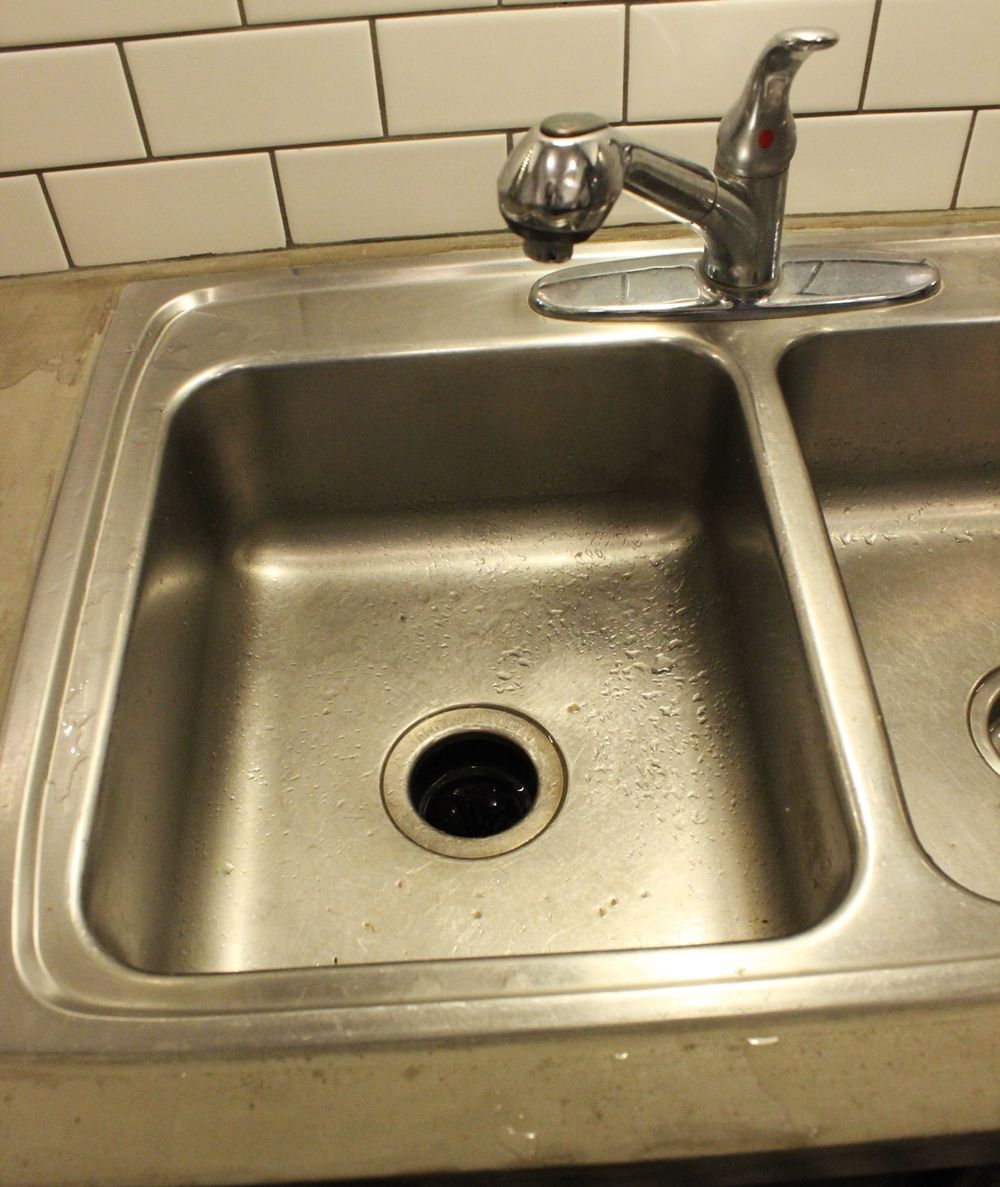

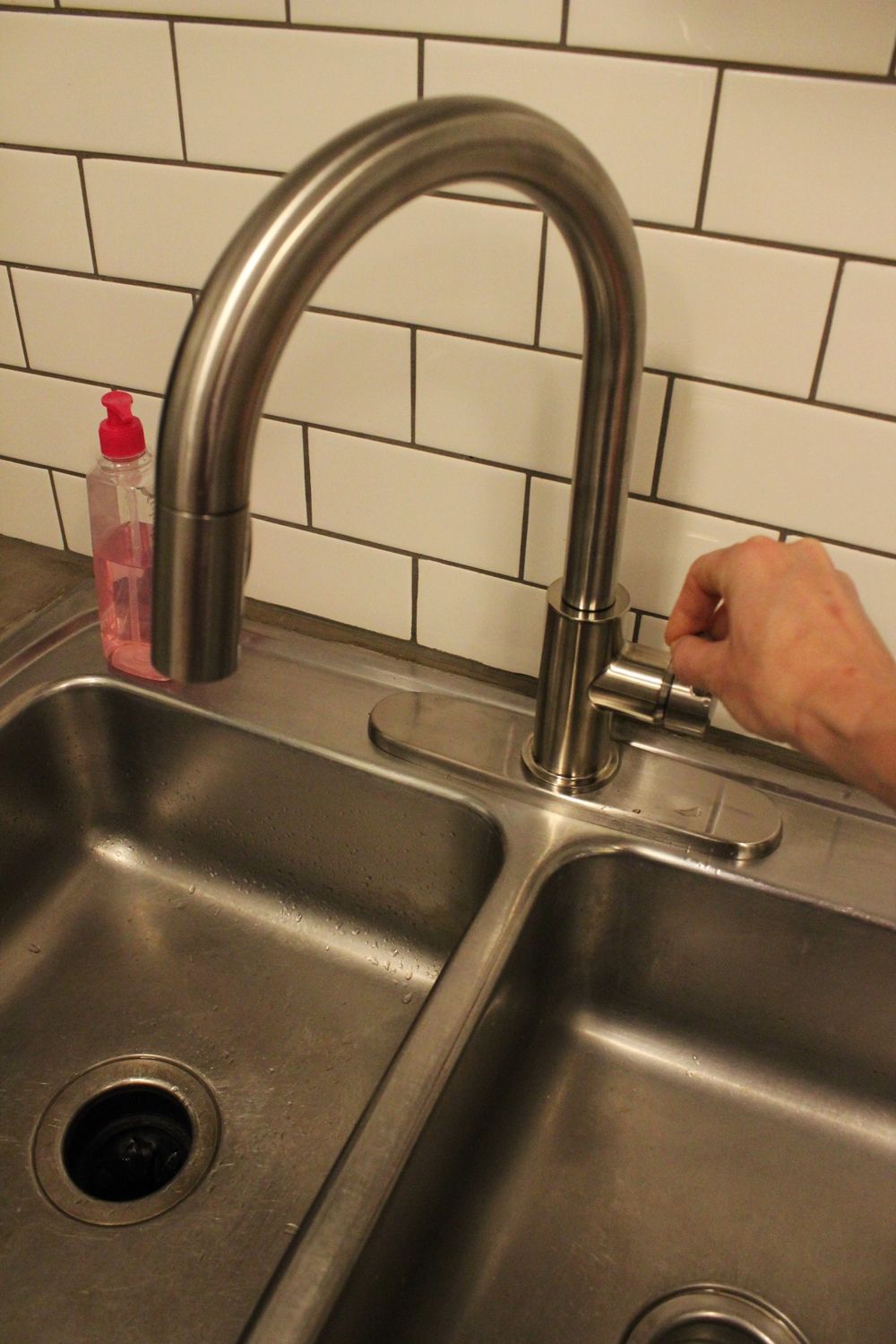





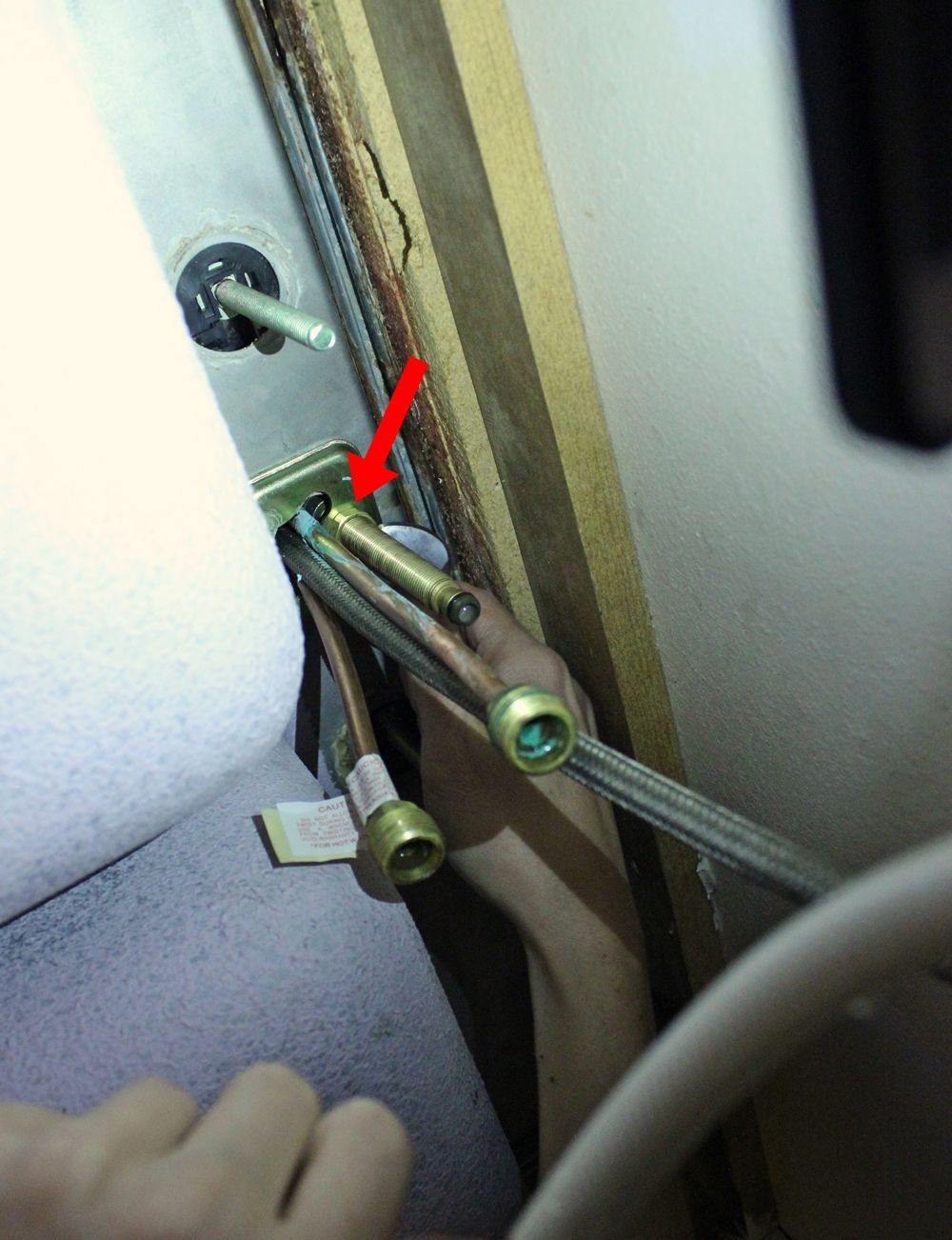









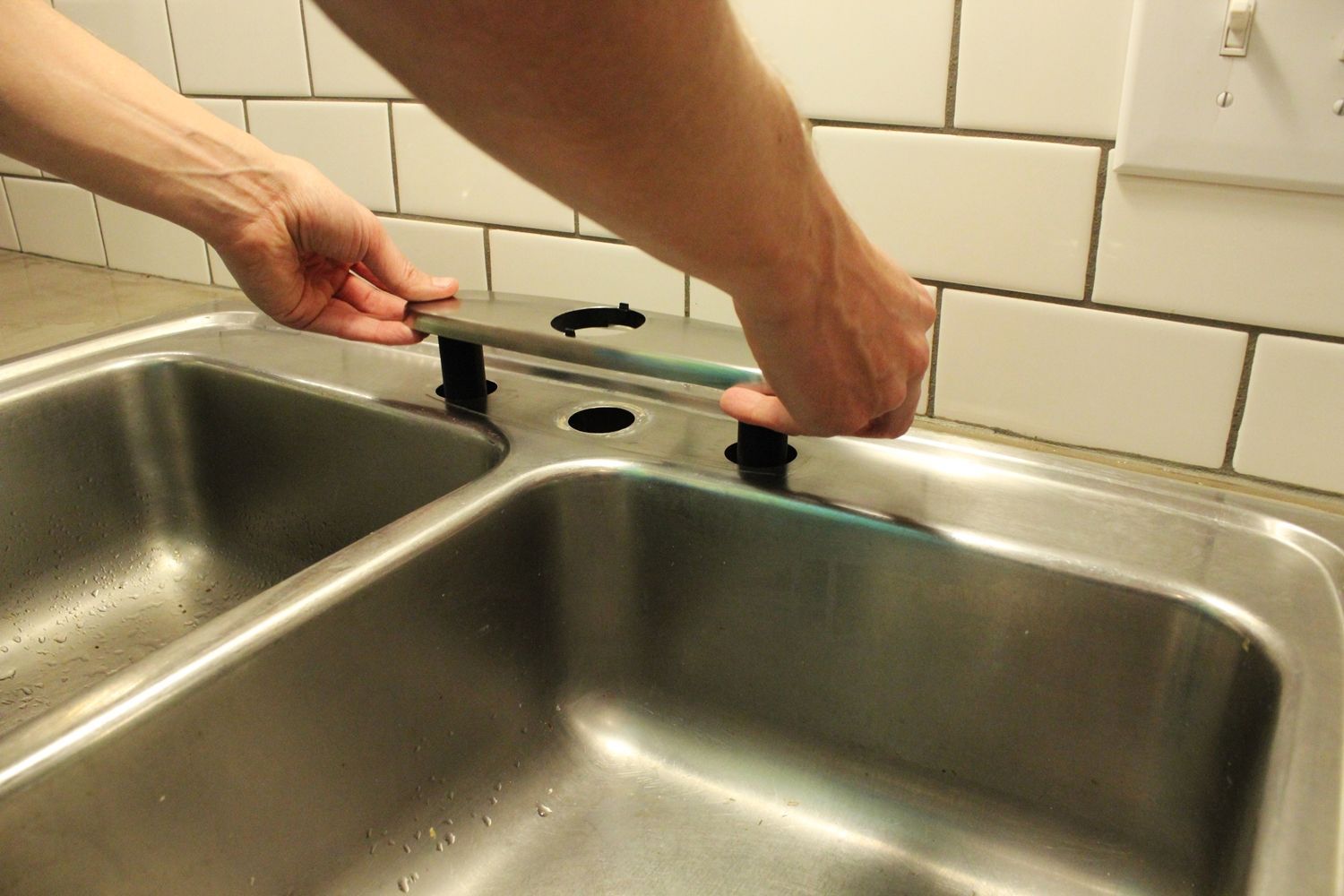



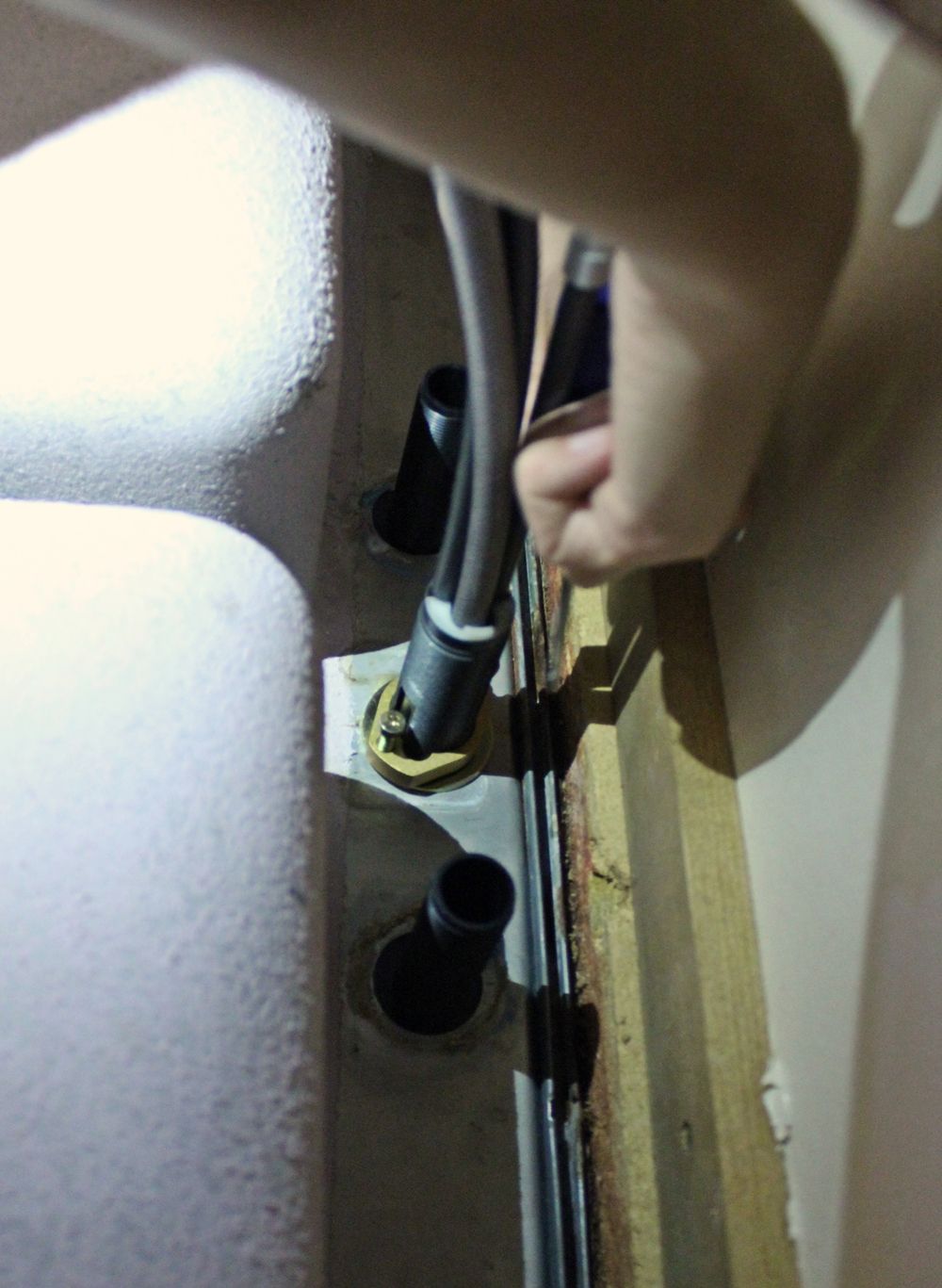












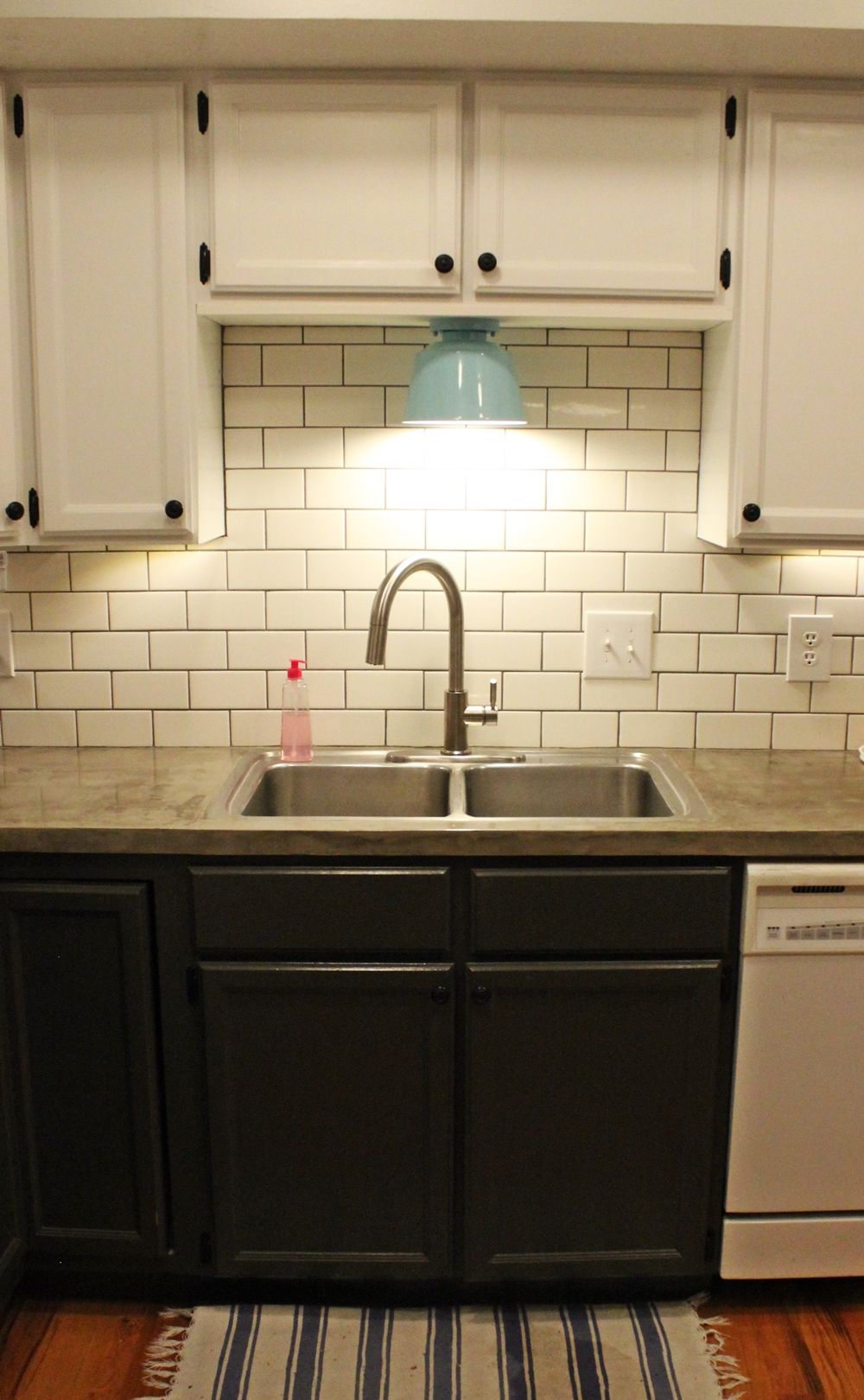


0 Commentaires